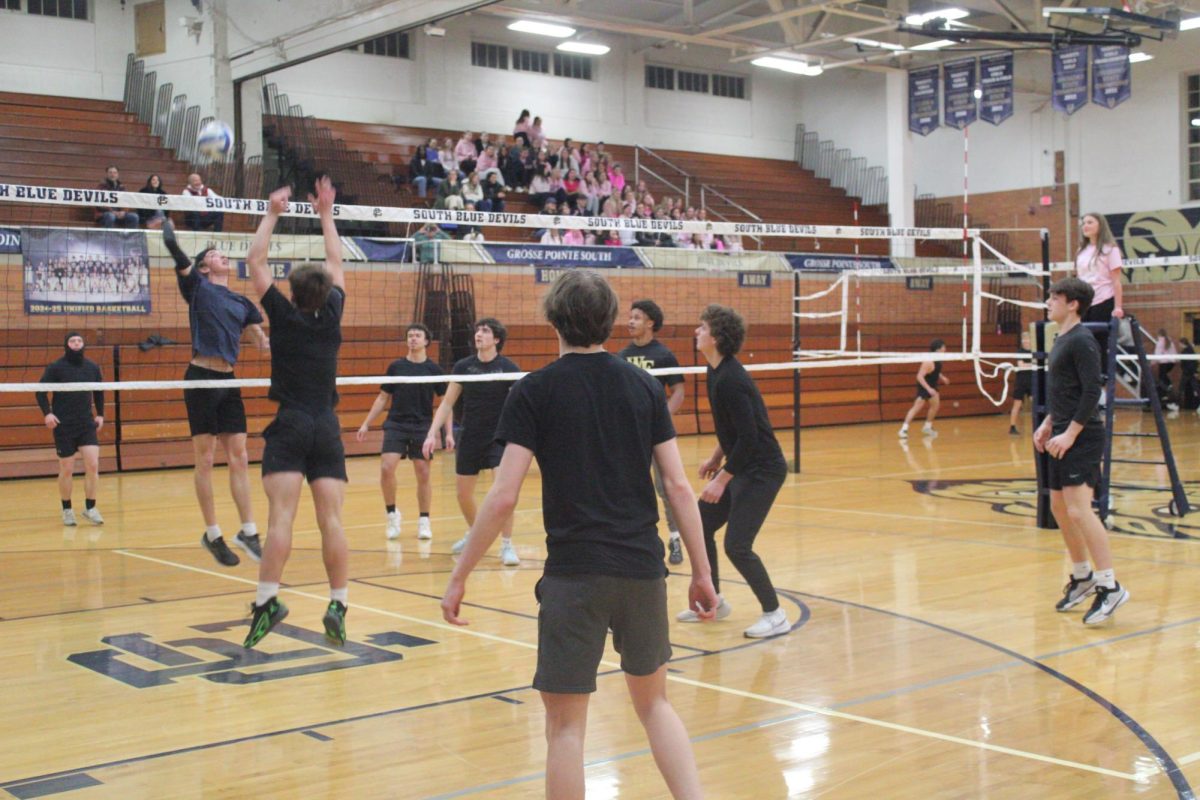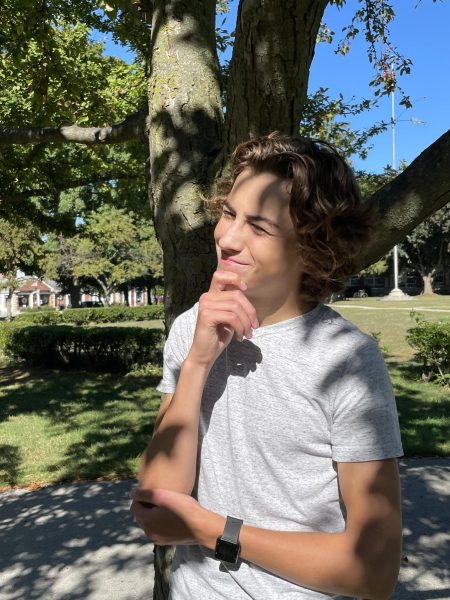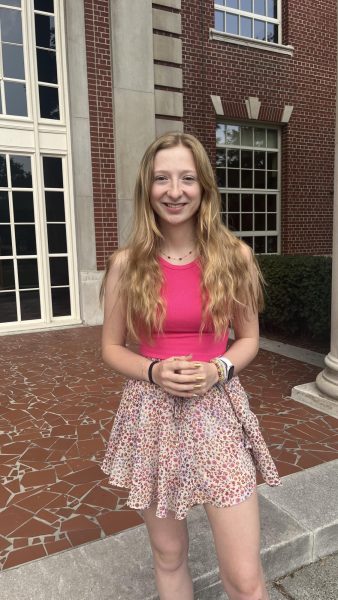Ken Daniels is a hockey broadcaster with a lifetime of experience working in the National Hockey League. A true hometown hero, Daniels has worked for the Detroit Red Wings for nearly three decades. In that time, he has seen the team win three Stanley Cups, move arenas, draft and retire multiple Hall-of-Famers and hockey legends, and through it all he has remained a constant force of good in the hockey community. An announcer for another team falls ill and can’t make it to the broadcast? Daniels flies out and covers for them. A player scores their first goal in the NHL and the goal is attributed to the wrong person? Daniels calls it out and gives the player credit. Other broadcasters are unsure how to correctly pronounce a player’s name? Daniels goes down to the locker room and asks the player himself. As a seasoned veteran of the league and of hockey itself, Daniels has not only endeared himself to Detroit, but to the hockey community as a whole.
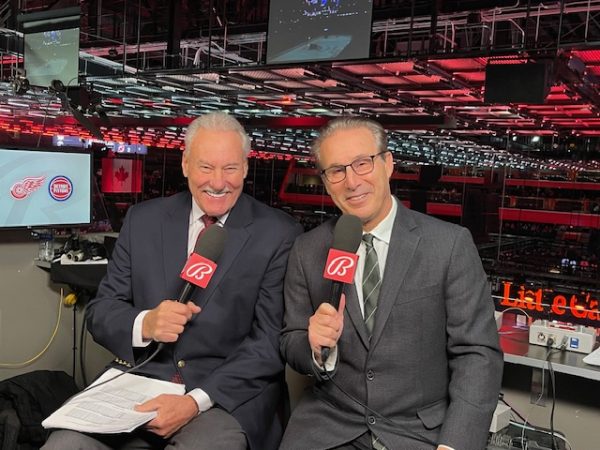
(Ken Daniels )
What led you to become a broadcaster in the NHL?
“I had a love of hockey, and it was ingrained in me; I grew up in Toronto, always loving hockey, and for some reason, the sounds of the game and the voice has fascinated me. It’s like anyone who says they want to do something from an early age, hopefully, you just follow your dreams.”
If you had to pick one moment as the pinnacle of your broadcasting career, what would it be?
“I actually went to Pittsburgh in ’08 when we won the cup in game six, beating the Penguins. Ken Kal, our radio guy, had lost his voice, so I flew down.”
It was game six of the Stanley Cup Finals in 2008 and the Red Wings led the series with just one game standing between them and the championship. With the entire city of Detroit on the edge of their seats and the rest of the hockey world watching, legendary Detroit radio broadcaster Ken Kal loses his voice and is incapable of announcing the play-by-play for the pivotal game. With no time for recovery and millions tuning in, someone needed to step in– someone who can keep up with the action and rally the fans at home while their team lays it all on the line in Pittsburgh.
Enter Daniels. With extensive play-by-play experience for the televised broadcast, a history in Detroit that spanned over a decade, and a dream he’d nursed since he was a kid, one could almost say he was born for this.
“I flew down (at) four in the afternoon and the game was at seven, and I stepped in for Ken Kal to call the game on the radio.”
“Then, with about 20 seconds left, I had to talk him into putting on his headset and call(ing) the final moments of the game because it wasn’t my place to call it. He was the voice of the wings on the radio. He didn’t want to do it. He said ‘I’ve got no voice’, (so I said), ‘Suck it up, you’ve got a voice, put a headset on,’ and he did.”
How have things changed during your time with the league, both in regards to the game and the broadcasting aspect?
“When I started with the Toronto Maple Leaves, radio 89 and then Hockey Night in Canada in the early ’90s television, you’d have 40 seconds to tell the story. Now, there’s no time, you come out of a commercial break and you don’t go to commercial break quickly, you have 15 seconds to tell the story”
Daniels’ drive and strategic announcing has only strengthened during his 27 years in the league- his mind constantly whittling down interviews with players into the most concise and usable bits possible, all while maintaining intrigue.
“I just know in my own head what sounds right and what doesn’t, what to lay out when, improving on what you need, throwing down storylines, telling them quicker,” Daniels said. “The challenge of the job is to convey the passion.”
Following the team’s win of The Stanley Cup, did you get to spend a day with it?
After winning a Stanley Cup, every player on the team is granted a day with it. It has traveled all over the country to the hometowns of many, and in 1997, not only did it venture to the homes of The Red Wings, but to the homes of Daniels and Mickey Redmond, the other broadcaster for the team. In 2002 following another Cup win, Daniels took it to his kids’ schools for his portion of the day, and it eventually made it back to Daniels’ house in 2008 for a celebration party.
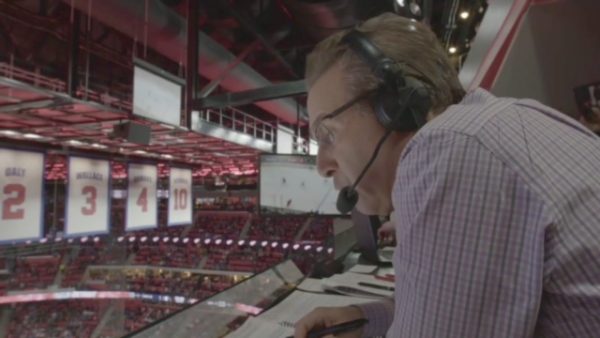
“When I came in ’97, they won it and it was September and I went to Mickey (Redmond)’s house, I hadn’t done a game with him yet,” Daniels said. “In ’02, when we left my daughter’s school to go somewhere else with The Cup to go to my son’s school, they actually locked the Stanley Cup in the car and they didn’t have their keys, so we had to call the West Bloomfield police (to unlock the car).”
How have you seen your broadcasting impact aspects of the game and fans?
“Sometimes we’ll tell a story on the air that will bleed into a story somewhere else or someone gets that from us. I know we were the first to tell the story (of) how Moritz Seider got the number 53 for Herbie the Lovebug because he was watching the movie with his parents and thought ‘That’s a cool number’ and (he) took 53. So we told that story on the air and then it ends up in media elsewhere and they carry it further and go from there.”
Although it is now used to describe the moves of skilled players all around the league, Daniels was also the first to coin a term to describe the plays of Pavel Datsyuk, a now-retired Red Wing.
“I was the first one for Pavel Datsyuk (to call) the move he had (a) ‘Datsyuk-ian Deke’ (and now) you’ll hear that on highlight shows.”










































































